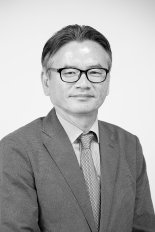[Son Sung-jin Column] Applause Even for Failure
- Input
- 2025-11-10 18:55:28
- Updated
- 2025-11-10 18:55:28

When compared to its Gross Domestic Product (GDP), Korea's R&D investment is the second largest among Organization for Economic Cooperation and Development (OECD) member countries, following Israel. This is a remarkably high level. Various indicators show that Korea's scientific and technological capabilities are higher than commonly perceived. As of 2022, Korea ranked fifth among OECD countries in science and technology innovation capacity. According to this year's national competitiveness rankings by the International Institute for Management Development (IMD), Korea placed 27th overall, but ranked second in scientific infrastructure, after being first last year. While Korea's share of the top 1% most-cited papers has stagnated at 14th for six years, this is still a respectable position.
Statistically, Korea appears to be achieving substantial results in science, commensurate with its R&D budget ranking. However, as evidenced by the absence of a single Nobel Prize laureate in science, there is still a lack of truly decisive achievements.
Uniform allocation of the R&D budget may not be justified if the principle of selection and concentration is applied. It is true that performance-based funding leads to greater efficiency. Some argue that more support should go to research with a higher chance of success. However, if fear of failure prevails, R&D will stagnate. Not every research or development project can succeed. If support is withdrawn or reduced simply because the intended results are not achieved, researchers will hesitate to embark on new challenges.
In this regard, we should look at countries ahead of us, such as the U.S. and China. In the U.S., failure among startups is commonly accepted. The success rate for R&D projects in the U.S. is 82%, meaning two out of ten projects fail even in this advanced scientific nation. The commercialization success rate is only 20%.
In Korea, the R&D project success rate reportedly exceeds 95%, reaching as high as 99%. A near-perfect success rate is not necessarily a good thing. It could indicate planned success or a preference for easy challenges. When the government announced its scientist support plan and cited these success rates, the scientific community countered that such claims were 'fake news,' arguing that only tackling easy projects unfairly maligns scientists and that there is no data to support this.
If this is not the case, all the better. If researchers are not afraid to tackle difficult problems and failures are commonplace, that is the right path. The government should not disparage the scientific community, and scientists should avoid unethical or irrational practices that fuel controversies over budget-sharing or misappropriation.
The fact that the Institute for Basic Science (IBS) allocated more than 1 billion won per researcher became a pretext for the previous administration's budget cuts. For a cash-strapped government or laypeople, this is not a trivial amount. Some say there is no comparable institution worldwide. This could be seen as monopolizing research funds or as focused support. Basic science is not a field where results come easily, and the likelihood of failure is high. The government and the public need to understand this.
SK hynix even selected and awarded cases of R&D failure. This system of recognizing failure has laid the foundation for world-leading semiconductor technology. When science is undervalued and failure is shunned, there is no future. Last year, China's R&D budget reached 715 trillion won, surpassing Korea's entire annual budget. With this vast financial power, China supports its scientists without questioning the results. However, even there, moral hazard is not ignored.
Whether it is the U.S. or China, there are lessons to be learned. When a culture emerges that recognizes failure and applauds even unsuccessful research, the future of science will be bright. Providing 100 million won each to 100 National Scientists is only a partial measure. What scientists value most is the freedom to conduct research. Criticizing research failures should never happen.
In terms of money alone, China generously offers 400 million or 500 million won to foreign scholars. To attract top talent with money, even more dramatic amounts would be needed. Most importantly, the fundamental environment must change so that talented young people aspire to become scientists rather than doctors. The government must implement bold policies to foster science and engineering. Only then will we see Korea's first Nobel Prize laureate in science or the next Steve Jobs sooner.
tonio66@fnnews.com Son Sung-jin Reporter